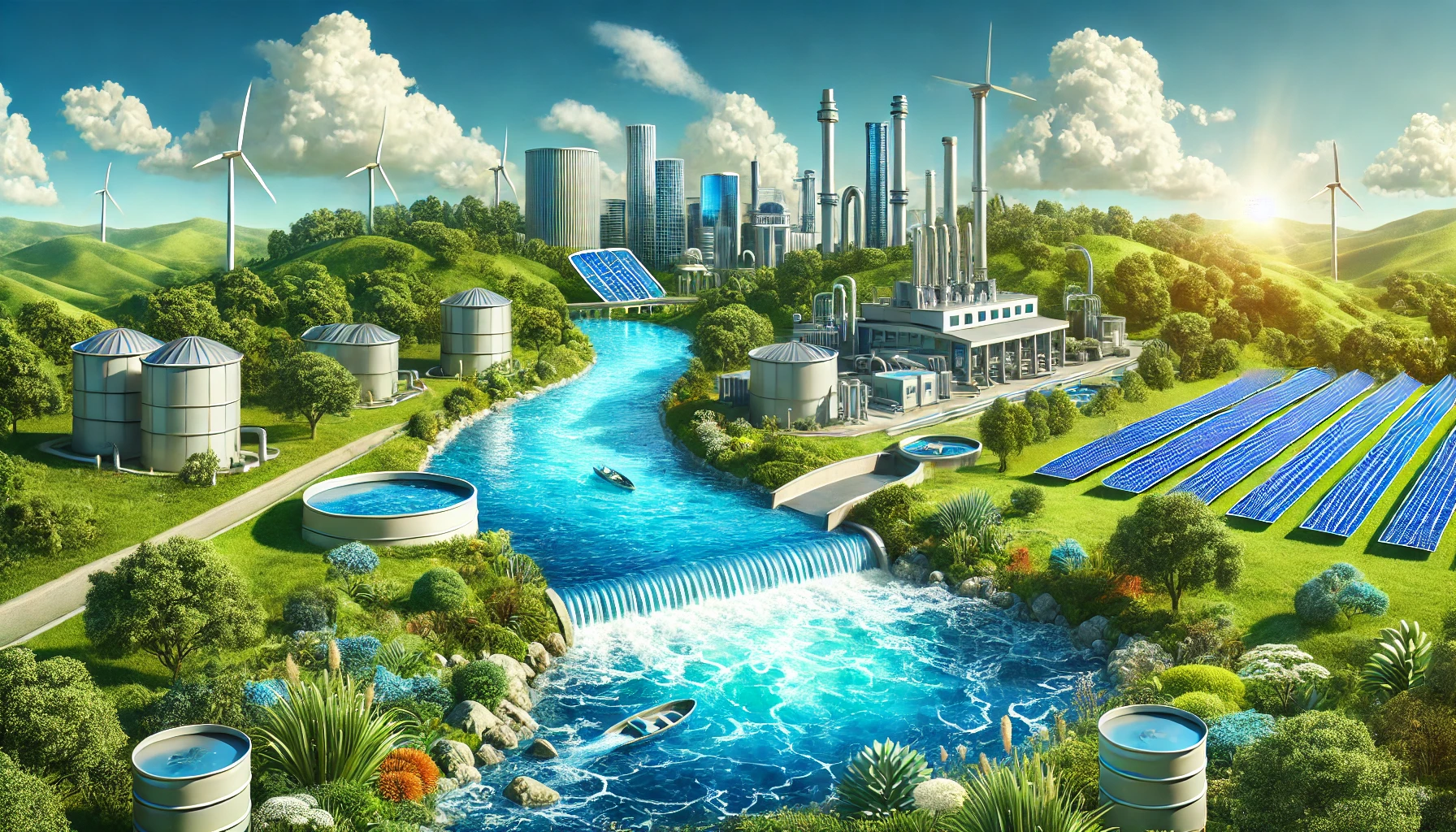2030 WRG’s Vision: Turning Water Scarcity into Opportunity with Global Solutions
The 2030 Water Resources Group, housed within the World Bank, addresses global water challenges by fostering public-private partnerships to promote wastewater reuse, efficiency, and pollution reduction. Its innovative models mobilize resources, strengthen regulations, and ensure sustainable water management in countries like Bangladesh, India, and Mongolia.

The 2030 Water Resources Group (WRG), an initiative housed within the World Bank, is at the forefront of tackling the dual challenges of water pollution and scarcity, which together claim 1.8 million lives annually and cost businesses an estimated $425 billion. By fostering partnerships between governments, corporations, and civil society, WRG aims to narrow the widening gap between water supply and demand. Leveraging private and public sector expertise, the group focuses on innovative approaches to water efficiency, reuse, and recycling. Its mission to transform wastewater into a valuable resource is realized through advanced public-private partnership (PPP) models that bring cutting-edge technology, operational know-how, and substantial private capital into play. At the same time, WRG is committed to strengthening regulatory frameworks and driving policy reforms to make these efforts sustainable and economically viable, ensuring long-term water quality management.
Unlocking the Potential of Wastewater
Globally, wastewater is often regarded as a costly burden, yet WRG sees it as a largely untapped resource with the potential to alleviate water scarcity, protect ecosystems, and safeguard public health. By promoting water treatment and reuse, WRG turns this narrative around, collaborating with industries, utilities, and governments to implement innovative solutions. These include the construction of central effluent treatment plants, the development of policies to ensure safe and efficient water reuse, and the introduction of accountability measures for water users. WRG’s efforts not only address pressing water challenges but also work toward restoring polluted rivers and ecosystems, making water consumption more responsible and sustainable. The organization’s integrated approach combines financial mobilization, private-sector involvement, and regulatory advocacy to drive systemic change.
Transforming Water Management in Bangladesh
Bangladesh serves as a prime example of WRG’s impactful initiatives. Facing an expected $6.6 billion funding gap for water pollution management by 2040, the country has partnered with WRG to implement its ambitious Delta Plan 2100. As part of this collaboration, WRG is mobilizing $550 million to extend wastewater services to 3.5 million people and treat over 25 million cubic meters of wastewater. Central to this effort is the creation of Bangladesh’s first PPP model for municipal wastewater management and PPPs for effluent and solid waste management in economic zones. These initiatives aim to build replicable frameworks that can serve as blueprints for similar projects globally. WRG’s ability to integrate sustainability with economic practicality has been critical to the success of its efforts in Bangladesh, providing a roadmap for effective water management in other regions.
Pioneering Global Water Reuse Solutions
WRG’s impact extends far beyond Bangladesh, with several pioneering initiatives that have reshaped water management on a global scale. In India’s Ganga Basin, WRG introduced the first PPPs for wastewater treatment and reuse, addressing one of the region’s most significant environmental challenges. Mongolia has benefited from the group’s efforts to create the country’s first voluntary code of practice for sustainable mine water management, alongside the implementation of a water pollution fee law based on the “polluter pays” principle. In Peru, WRG developed the first certification system for sustainable corporate water footprints, encouraging businesses to adopt environmentally responsible practices. These groundbreaking projects demonstrate WRG’s ability to adapt its strategies to diverse regional needs, showcasing the versatility and scalability of its water management models.
Scaling Up: The Future of Water Reuse
A cornerstone of WRG’s vision is its "Scaling Water Reuse" initiative, which aims to amplify the adoption of water reuse practices through innovative financial and incentive structures. Over the past decade, WRG has developed groundbreaking frameworks to make water reuse economically feasible and operationally practical for industries and municipalities. These include mechanisms such as tradable wastewater reuse certificates and performance-based incentives that motivate stakeholders to adopt sustainable practices. By addressing the economic barriers to water reuse, WRG has opened new possibilities for securing water resources, reducing pollution, and mitigating the environmental impacts of water use, including carbon emissions. The initiative highlights the importance of collaboration between public and private sectors in driving transformative change and building resilience against future water challenges.
Shaping a Sustainable Water Future
WRG’s work underscores the immense potential of wastewater as an economic and ecological asset. By aligning technological innovation with regulatory reforms and financial strategies, the organization has set the stage for scalable, long-lasting impact. Its projects serve as a blueprint for countries and organizations worldwide, showcasing the power of collective action to address shared water challenges. From developing first-of-their-kind partnerships in the Ganga Basin to pioneering pollution reduction frameworks in Mongolia, WRG’s initiatives have redefined what is possible in water management. Through its relentless pursuit of sustainability, the group envisions a future where wastewater is no longer a liability but a resource that drives economic growth, environmental protection, and social well-being. By transforming how the world views and uses water, WRG is securing a healthier and more sustainable future for generations to come.
- FIRST PUBLISHED IN:
- Devdiscourse
ALSO READ
World Bank and Bangladesh Commit $900M for Climate Resilience and Inclusive Growth
World Bank Provides $3.5M for Uzbekistan’s Solar Power Project in Khorezm Region
World Bank Fast-Tracks US$12 Million to Vanuatu for Earthquake Recovery
World Bank Group Scorecard FY24: A Blueprint for Inclusive Growth and Climate Resilience
World Bank's Optimistic Forecast for China's Economy Amid Challenges










